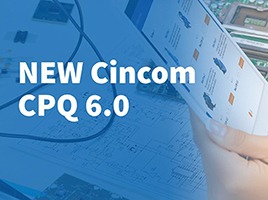Inflexible solutions are capable of slowing down the digital transformation of a business. This is especially true with ERP systems. This is why businesses need to remain in vogue as far as ERP trends are concerned as it is beneficial to the business organization and the customers.
ERP software has seen more adoption in recent years with more innovation and a bigger market. While the first few years of ERP focused on transitioning to the cloud, new emerging trends are even more appealing.
This article from authors at BrillAssignment briefly discusses the top 7 ERP trends for 2021.

Cloud Acceleration
Streamlining a business’s operations with cloud-based ERP software isn’t a recent trend, but it continues to be a game-changer. ERP solutions used to have expensive startup fees and hardware expenses. However, all of that changed with the introduction of cloud computing.
This ensures that businesses don’t have issues with expensive maintenance and updates of software. Also, they can choose the modules that they need for a department and save running costs.
Companies now take this one step further by integrating hybrid ERP solutions. This combines the strengths of on-premise and cloud-based ERPs without their weaknesses. This provides an ERP system that is ideal for businesses that focus on products and assets.
ERP with Real-time Data
There are numerous benefits of real-time data for organizations. Some of these are:
- ● In-depth insights
- ● Improved customer experience
- ● Streamline business functions
This is why many businesses are integrating ERP systems into their significant operations. According to an essay help at custom papers, ERP systems will aid business data communication across the different departments in an organization. This is because it combines multiple tools that the various departments use.
ERP with real-time data also helps to improve the customer service of the organizations. This is another significant advantage as the customer service department has all the information they need about individual customers.
Integration of IoT
Business organizations can get a lot of opportunities from integrating IoT and ERP. While IoT makes connectivity easier for physical devices within the network without human intervention, ESR systems would be unable to leverage IoT without adopting a customer-centric approach.
This integration allows organizations to use sensors to collect, evaluate, and assess large amounts of data. The production process is also better monitored with real-time information about the machines’ performances. It also means that operations will be automated, and there’s less reliance on technicians. These are only a few of the benefits that ERP and IoT integration offers.
Mobile Application
Gone are the days when mobility was a stand-out feature. In today’s world, it is the standard. ERP systems must have mobile support as basic functionality, and there are many benefits to this apart from accessing data on-the-go.
The ability to undertake business operations anywhere and at any time is an obvious benefit. So, mobile devices like smartphones and tablets provide both front-end and back-end activities. This helps to boost overall productivity.
It also makes the process of capturing data more convenient and accurate. It enhances communication, thereby reducing the risk of delay in production. These benefits can help to increase efficiency, make decisions quicker, and improve the workflow.
Personalized ERP Solutions
Personalization is a major trend across different industries in recent years, and this is no different. There are fewer one-size-fits-all solutions by the year, and there will be more of this in 2021.
We expect to see ESR solutions have a very extensive user interface. This will make it more accessible, flexible, and customer-centric. It will also be possible for anyone to operate the tools and not just IT specialists and programmers. With personalizations, ERP solutions will be able to handle the massive growth of technologies such as AI and IoT.
AI Integration
AI integration is a common trend for many industries and has been the subject of discussion for years within the ERP industry.
Companies have an increasing number of complex and unstructured data to collect. To use it effectively, they must find better ways to analyze it. This is what the integration of artificial intelligence offers. According to a college paper, this makes it easy to reduce the loading time of information, reduce errors, create workflows, etc.
Digital Marketing
You can hardly talk about ERP systems without mentioning marketing. The growth of these solutions means that companies have to adopt them in their marketing processes. Without an ERP system, a marketing campaign will lack the relevant metrics that are required.
The rise of social media and its usefulness for digital marketing means that ERP systems now integrate capabilities for social media platforms. This aid post publishing, link gathering, getting analytics, etc.
Conclusion
The evolution of ERP solutions means that it’s no longer accessible to just large scale businesses. It’s now very common, and small scale businesses can leverage this for their growth. Some companies startup with these solutions, and it is also becoming popular among developers and innovators.
The constant rise means that it’s essential to keep abreast with trends in the ERP industry.





